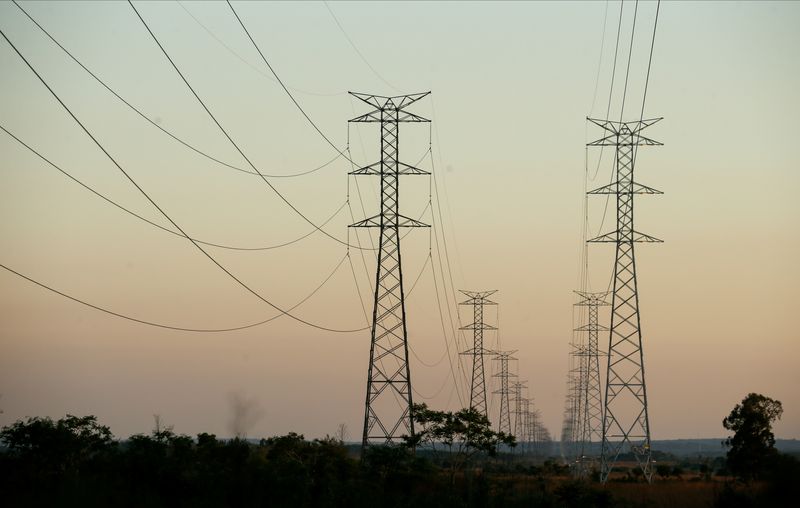By Nora Eckert
DETROIT (Reuters) -U.S. new-car sales in 2024 continued to rise from their pandemic lows, bolstered by replenished inventories, higher incentives and surging demand for hybrid vehicles, automakers reported on Friday.
Sales of new vehicles finished at 15.9 million last year, according to Wards Intelligence, up 2.2% from the prior year, and the highest since 2019. Automakers are projecting strong sales will continue into 2025, although President-elect Donald Trump’s proposed automotive policies, such as removing tax credits for EVs, present a wild card.
“We’re carrying significant momentum into 2025,” Rory Harvey, GM’s head of global markets, said in a release. The Detroit automaker defended its 2023 crown as the biggest U.S. carmaker by sales, selling 2.7 million vehicles last year, the company said on Friday, up 4.3% from 2023.
Most automakers recorded solid sales results last year, as they adjusted to slowing demand for EVs and relied on their core business of gasoline-powered trucks and SUVs, while some capitalized on soaring consumer interest in hybrid vehicles.
Sales of traditional hybrids increased 36.7% in 2024 compared with the previous year, Wards reported.
‘HYBRIDS, WE’RE SOLD OUT’
Toyota (NYSE:) notched a 3.7% sales gain year-over-year in the U.S., boosted by steady increases of reliable smaller vehicles such as the Camry and RAV4 SUV, as well as significant gains for hybrid vehicles. Reuters reported last year that the automaker is potentially converting all of its lineup into hybrid-only models.
“For hybrids, we’re sold out – customers want them, we can’t get enough of them,” said David Christ, head of sales and marketing for Toyota in North America. “Battery electric vehicles, even with the huge incentives we’re spending and the federal government’s incentives, are just not as in demand.”
Ford Motor (NYSE:) also benefited from an increase in hybrid sales, which helped the automaker’s total vehicle sales rise 4.2% in 2024. The Dearborn, Michigan, company sold roughly double the number of hybrids compared with its EVs, with 187,426 hybrids sold and 97,865 EVs.
Automakers have axed or changed lofty EV plans laid out when demand seemed much stronger than it turned out to be, but they are still aiming to attract new EV buyers.
Ford said on Friday that in an effort to support EV sales, which were up 34.8% for the automaker in 2024, it would extend a program where EV buyers receive free chargers and installation at home through the end of March.
U.S. sales of electric vehicles are expected to approach 1.3 million, or about 8% of all new vehicles purchased, Cox Automotive said. Buyers’ willingness to go electric crept up slightly from 2023, when U.S. drivers bought 1.2 million EVs, comprising 7.6% of all sales, Cox said.
The Trump administration’s plans would likely affect auto sales in 2025 and beyond, if the incoming president makes good on plans to roll back President Joe Biden’s EV policies, including a $7,500 consumer tax credit on some EVs, as well as increase tariffs on imports from Mexico and Canada.
“If you take true demand for the car and you eliminate the $7,500 benefit … it’s really going to change who wants them and how they buy them. So we’re preparing for that,” Toyota’s Christ said.
STELLANTIS AND TESLA LAG
Jeep maker Stellantis (NYSE:) and electric vehicle giant Tesla (NASDAQ:) were the outliers last year, recording slipping sales compared with 2023.
Stellantis had a particularly rocky 2024, selling 15% fewer vehicles in the U.S. compared with 2023, and recording decreases across its popular Ram, Jeep and Dodge brands, the company reported on Friday. The French-Italian automaker grappled with fallout from an aggressive pricing strategy that ultimately led to the abrupt departure of former CEO Carlos Tavares.
Tesla has faced slowing sales as its lineup grows stale and competition in China intensifies, eating in to an important market for the company run by Elon Musk. The EV giant reported a rare decrease in yearly deliveries on Thursday.
Read the full article here
















